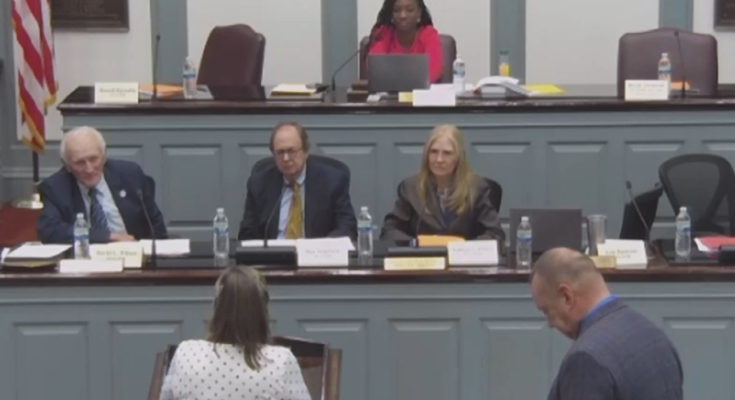A Sussex County mother’s long struggle to have her late husband legally recognized as the father of their child has taken a step forward with the introduction of legislation in Dover. Senate Bill 119, sponsored by Senator Brian Pettyjohn, would amend Delaware law to direct the State Registrar of Vital Statistics to list Ryan Murray as the father of Levi Ryan Murray, the son he helped create before his untimely death. The bill is the result of Megan Murray’s tireless efforts to secure legal recognition for her husband following his tragic death just one day before a scheduled embryo transfer.
Megan and Ryan Murray had been married for twelve years and faced numerous challenges with fertility, Pettyjohn said during a committee meeting on Wednesday. After several failed attempts and a lengthy wait for insurance coverage, they began the in vitro fertilization (IVF) process in late 2019. By February 2020, they had two viable embryos and were scheduled for an embryo transfer on February 4. On the night before the procedure, February 3, Ryan Murray, 34, was killed in a car crash on Seashore Highway near Bridgeville.
The embryos were preserved, and Megan, while grieving the sudden loss of her husband, made the decision to move forward with the embryo transfer more than two years later. In March 2022, she underwent the procedure, and in November 2022, she gave birth to Levi Ryan Murray using one of the embryos she and Ryan had created together.
Despite the couple’s marriage, the intentional creation of the embryo, and Ryan’s clear commitment to fatherhood, Delaware law barred his name from being placed on Levi’s birth certificate. Under Title 16 § 3121(h)(1), a husband’s name may be entered in such cases, but the 2000 Uniform Parentage Act—adopted in part by Delaware under Title 13 § 8-707, requires explicit written consent for posthumous parentage. Because Ryan’s death was sudden and occurred before he had a chance to provide such a narrowly defined legal statement, he was not legally recognized as the father. Under current law, he is treated not as a parent, but as a sperm donor.
Megan fought to correct what she saw as an unjust outcome. She petitioned the courts twice in an effort to have Ryan listed as Levi’s father but was denied both times. These legal obstacles not only denied Ryan’s parentage but also prevented Levi from accessing Social Security survivor benefits that would have otherwise been granted had Ryan’s status been recognized. Ryan’s daughter from a previous relationship continues to receive those benefits, while Levi, conceived and born with the same father’s full intent, does not.
Senator Brian Pettyjohn, who introduced SB 119, highlighted the emotional and legal complexity of the case during the committee hearing, describing it as both heartbreaking and emblematic of larger issues in Delaware’s statutes. “Ryan was fully committed to fatherhood,” Pettyjohn said. “They had a name picked out. The nursery was ready. This wasn’t speculative, this was the family they had planned and prayed for.”
SB 119 would amend § 3131(b) of Title 16 to instruct the Registrar to add Ryan Murray’s name to Levi’s birth certificate without labeling the document as “delayed” or “amended,” preserving its full legal status. The bill provides what Pettyjohn called an immediate and necessary remedy for the Murray family while shining a light on broader inconsistencies in Delaware’s parentage laws.
“This legislation is about honoring the legacy and intent of Ryan Murray,” Pettyjohn told lawmakers. “It ensures that his son, Levi, can grow up with a birth certificate that tells the truth about who his parents were, a loving, committed couple who worked together to bring him into the world.”
While narrowly tailored to resolve the Murray family’s case, SB 119 also calls attention to the broader need for Delaware to update its laws to reflect the realities of modern reproductive technology and family structures. Pettyjohn said the General Assembly must take a more comprehensive look at how statutes intersect with situations involving IVF, posthumous conception, and legal recognition of parentage.
“We must make sure that our statutes are clear, compassionate, and prepared for situations like this moving forward,” Pettyjohn said. “Families facing similar circumstances in the future deserve certainty and dignity in how the law recognizes their loved ones.”
During the committee meeting members on both sides of the isle said that they plan on voting the bill out of committee.

